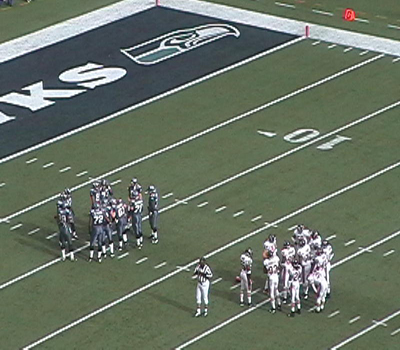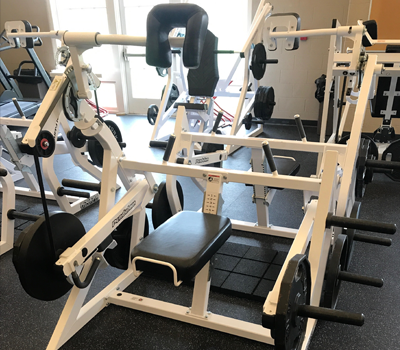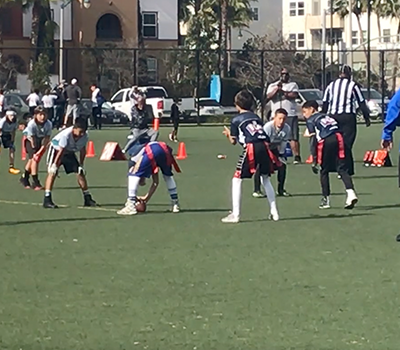Omega-3s
Many NFL dieticians provide their athletes with omega-3 fatty acid supplements because they play a major role in the functioning of the brain. Neurologists, sports dieticians and the like say that studies on the effects that omega-3s have on concussions are still very young. But most are advocates of taking a daily supplement or incorporating it into the diets of athletes to maintain a strong brain.
Although omega-3s are found in fish, it is recommended by dieticians for athletes to take a supplement because the body does not efficiently produce omega-3s.
Omega-3 supplement that is concentrated with DHA and EPA, which are types of omega-3 fatty acids both found in marine oils. DHA, specifically, helps maintain normal brain function in adults. If deficient, an adult can be at risk for cognitive decline and Alzheimer’s disease with aging.
Brain Armor is an NSF-certified omega-3 supplement. This company provides their supplements to multiple NFL teams and is the brain supplement of choice for the NFL Alumni.
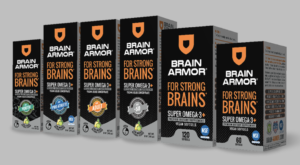
Brad Caister, a business consultant of Brain Armor, says a consistent intake of an omega-3 supplement will not cure or prevent a concussion. But it does have anti-inflammatory and neuroprotective effects.
He says although there is not enough evidence to prove the supplement can cure or prevent a concussion, Brain Armor has been investing into research. This company’s supplement has been used to support and fund concussion-related studies.
“The only thing that is going to curb that is by having more clinical evidence done in the field of play on athletes,” Caister said. “So, we are just on the cusp of something.”
Brain Armor was part of a 2016 study performed by Texas Christian University. This study tested the effects of different doses of a DHA supplement on their own football team. The TCU football team was monitored for 109 days from summer conditioning to the beginning of the regular season. The study revealed that DHA has neuroprotective effects.
Brain Armor is now part of a second study performed by TCU and the Canadian Rugby Federation. This study is currently examining the effects of omega-3s on head trauma in elite women and men’s rugby players in Canada during their rugby season. TCU’s team will be monitoring and testing these athletes until the World Cup, and they are aiming for the same results as the previous study.
“The effects of the Omega 3s and fixing concussion symptoms have seemed to be pretty successful in the research that’s out there,” Joey Blake, Los Angeles Rams sports dietician, said. “To my knowledge up until this point, the preventative measures for Omega 3s are a little to-be-determined. But the outlook looks good. Hopefully the research will continue to get stronger and stronger.”
And while studies on Omega-3s are still young, Dominique Duncan, USC Assistant Professor of Neurology, says people should not expect them to reverse the damage that has already been done.
Blake says the Rams team take a daily supplement of omega-3s to reduce inflammation. But when a 200-pound athlete is running 15 mph and makes head-to-head contact, it’s unlikely any supplement can prevent a concussion.
Morgan Cox, long snapper for the Baltimore Ravens, has never received a concussion but he regularly takes an omega-3 supplement. He says in the Ravens training room, they have a “training table” that has omega-3 canisters among other things that they can grab as freely as they want.
“Our dietician gives us a lot of literature about omega 3s, and I’ve heard plenty of speakers talk about Omega 3s and in their positive effects on preventing concussions,” Cox said. “I’ve seen presentations where they say that a steady dose of omega 3s is helpful in reducing a concussion occurrence, and overall brain health, as well.”
The literature from the team’s dietician Cox mentions is in each athlete’s playbook. This provides information about the preventative measures that they can take to reduce the likelihood of receiving a concussion.
Gregg Guenther, a former tight end for the Tennessee Titans in 2005 and the Cincinnati Bengals in 2006, said he never met with a team dietician. At that time, he wasn’t advised to take an omega-3 supplement. But Marques Hagans, a former wide receiver for the NFL for the St. Louis Rams, Kansas City Chiefs, Indianapolis Colts and Washington Redskins in 2006-2010, was advised to include omega-3s in his diet.
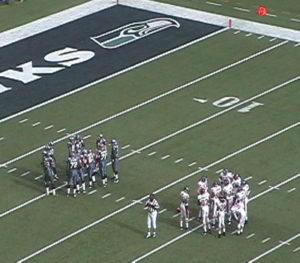
“Omega-3s were a part of my diet and my workout plan,” Hagans said. “My trainers, strength and conditioning coaches and nutritionists all provided an insight and information about Omega-3s. They’ll always be a part of my diet, which they are right now, as well.”
“Nutrition plays a huge role in concussion recovery,” says University of Southern California’s football sports dietician, Andrea Vanderwoude.
She says the football players have to get a prescription for select supplements per NCAA rules, and omega-3s is one of them. While an athlete is recovering from a concussion, she recommends they eat salmon or other fatty fish often. But she realizes omega-3s are hard to get from food and they’re essential to brain health.
“To keep your brain as strong as it possibly can be is a step in the right direction,” Caister said. “In the way I like to put it is, you take protein for your muscle to make them strong and take calcium for your bones. But what have you been told to take for your brain to make it stronger?”


